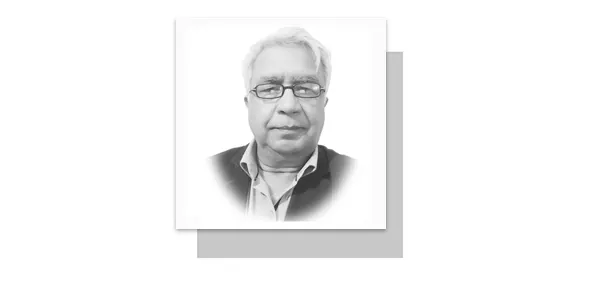PAKISTAN is still a nascent democracy that must measure many yards of people’s welfare agenda in the coming years. Right now, it is suffering from socio-political, financial and moral crises of multiple dimensions which are loudly calling for its redressal. One of the main reasons for its precarious situation is the hardliner politicians who run the agenda which they think is proper for him and his party without knowing the ground realities and the viability of his schemes and plans. This approach has failed to work because neither democracy can be ensured within the party nor the welfare of the people. Moreover, it just added more doors for corruption and fear-politics which in turn gave a sense of insecurity among the people and a greater level of distrust in the democratic process itself.
Today Pakistan and its people suffer from social, financial and moral crises but the root cause of all this is political crises and instability. The prevalent political agenda and approach of domestic politics have tarnished the name of Pakistan and, thus, created more difficulties in dealing with international politics. The foreign powers after realizing the incapacity of the Pakistani political system to stand with its people have resorted to stringent measures to reap maximum profit and political benefit from Pakistan and paying back as little as possible. The situation gets even worse when the hardliners fail to listen to the sane advice and rather think of punishing anyone who makes even the least objection to their doings. This political approach lands all types of progress into multiple quagmires of irrecoverable nature.
This nation is resilient and persistent and still can work wonders if softliner politicians are available at the leadership level. A softener politician not only loves himself and his party but also his people and can not see them in any kind of trouble. He feels the pain of his men, women, children, old people and the rich and the poor equally and his soft-hearted approach to life prompts and urges him to help his people and suggest and devise such plans and schemes which may benefit his people in general. For example, he would naturally love to educate his people and increase the literacy level along with the health benefits and would not let the funding escape to the schemes that benefit the elite and the powerful. The democratic welfare states have come into being only when the benefit of the affluent is taxed to provide living to the poor and the destitute.
The squeezing size of the middle class and spiraling size of the poor class means that the elite and the powerful are thriving at the cost of the poor people and the Middle class is sinking because it is losing control of its sources and income and that the elitism is gaining ground on the same. If we look at European and American societies, the Middle class rules the rooster and the political leadership also stands with them to win the victory in elections. This makes the surety of human rights at a better level. The people have more of their say in the matters of the state and can raise any issue that can possibly damage their rights because the people are more educated and are loved by their leadership. But all this needs a softliner approach and not the hardliners.
Hardliner’s approach works wonders when the matters of the state are at risk and the danger of maligning the name and fame of the state is in the offing or even at the level of diplomatic ties. The protection of one’s borders, ideological and physical needs a purely hardliner approach. In our country, the situation is always reversed because we have a long history and tradition of accepting demands of international institutions or global businesses which has made the life of the common difficult and sometimes even non-liveable.
The prime motives of all of us must be to promote the welfare and benefit of our people. This is even more significant in Pakistan because the bulk of our population is associated with agriculture or Agri-based small businesses. It means the majority of these are at the lowest rung of the economic ladder and much more must be done to raise their status to the middle class through people-friendly investments and developmental schemes. A softliner leadership for its people can make the people of Pakistan work wonders for making Pakistan stand shoulder to shoulder with the welfare states and communities of the world. A softliner politician has maximum backing and support from his people and can earn confidence from his people. It becomes a reflection of a strongly united nation that through its resilience and hard work can stand on its own and can procure a better leverage from the world.
—The writer is a Professor of English at Emerson University, Multan, and has a vast international exposure.
Email: [email protected]










